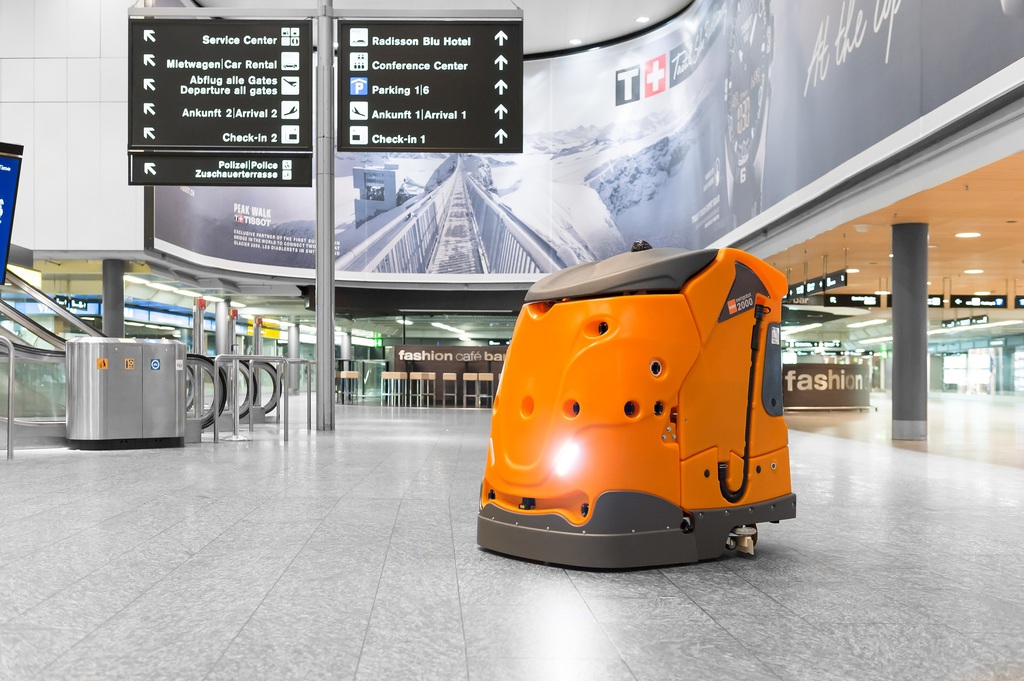Who could have imagined just a few years ago that technology-driven innovations would affect the cleaning industry and the daily lives of those working in it?
We now live in a world that is increasingly interconnected where the ability to create, access and share information, and then take actions, has never been easier.
One of the clearest examples of this is the emergence of the Internet of Things – the myriad of gadgets that communicate with each other over ‘the cloud’.
According to leading IT research analyst, Gartner, around 11 billion such devices – excluding tablets and smartphones – will be in use by the end of this year, and this will nearly double within two years.
Operators can improve their qualitative standards while lowering the cost of cleaning and hygiene programmes
And, despite a slow start, the cleaning industry is beginning to embrace this significant trend, which Diversey cis calling ‘the Internet of Clean’.
This provides a framework that remotely monitors equipment, machines, and operations through sensor-generated data.
Analysing this data enables insight into cleaning operations, dosing, compliance and machine performance.
And there are already many examples of how this is applied across the cleaning industry:
Floorcare machine monitoring
Managers can see the location, utilisation and performance of their fleets remotely and in real time. They can identify under and over utilisation to ensure equipment is deployed more effectively, economically and reliably.
Managers can also identify maintenance requirements before they impact on performance. The result is more machine uptime and fewer unscheduled service calls for lower overall cost of ownership.
Cleaning audits
Devices including smartphones are used by cleaning teams to follow instructions, confirm actions and provide feedback such as text, images and video.
Managers can see the status of any operation, where tasks have yet to be completed, and overall performance levels.
They can assess success and compliance with service level agreements, provide evidence to customers, and streamline their operations to improve productivity and profitability.
Remote monitoring
Operators can monitor laundry and dishwashing machines to see information such as number of cycles completed, volumes cleaned, product levels and the amount of water and energy used. They can respond pro-actively to maximise machine uptime and efficiency.
Robotics
Robotic floorcare cleaning machines work autonomously to liberate cleaning staff for more productive and valuable tasks.
These machines generate information on the areas cleaned, how long they took and how much water, chemical and energy was consumed. This is used to analyse performance and demonstrate compliance to customers.
Machines can also be monitored and reprogrammed remotely to reduce onsite interventions.
Compliance monitoring
Handwash dispensers in hospitals, food service kitchens and elsewhere monitor the number of uses and the amount of product consumed.
This gives operators a clearer understanding of utilisation and hand hygiene compliance.
They issue alerts when product or battery levels get too low so that supervisors can intervene to maintain availability.
Augmented reality
Feature-rich interactive content is delivered direct to the user to complement conventional operating, maintenance and training guides. This not only promotes greater efficiency, but reduces the need for time-consuming interventions to deal with routine issues.

These and other innovations are accessed over the Internet of Clean using smartphones, tablets and desktops.
Users have a digital portal and intuitive dashboards where they can review data and trends.
This quantifiable information offers valuable, real-time insight into their operations, delivered in easy-to-interpret KPIs.
There is no doubt that the Internet of Clean will enable customers to improve productivity, compliance, operational performance, and sustainability
Operators can improve their qualitative standards while lowering the cost of cleaning and hygiene programmes.
And, in the majority of cases, the services can be configured to send a text or email alert when predetermined conditions arise. This means that supervisors and managers can take action before an issue impacts on the customer or end user.
As an industry we are on the start of a journey with the Internet of Clean.
The future is as hard to predict as ever, but there is no doubt that the Internet of Clean will enable customers to improve productivity, compliance, operational performance, and sustainability.




